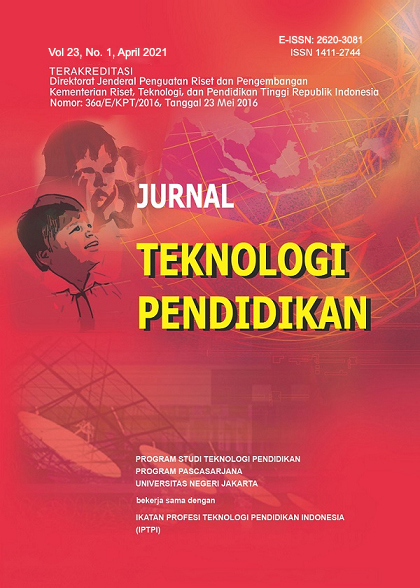Developing Educational Games for Mathematics Learning to Improve Learning Motivation and Outcomes
DOI:
https://doi.org/10.21009/jtp.v23i1.18356Keywords:
educational games, mathematics learning, learning motivation, learning outcomesAbstract
This study aims to develop learning educational games as learning media in the mathematics learning process to increase students’ learning motivation and outcomes. Educational games are designed to help students understanding a simple geometric shapes such as angles, sides, and nets. The development model was based on the ADDIE model covering Analyze, Design, Development, Implementation, and Evaluation stages. The result of the feasibility assessment by media and material experts reached 94% and 90% of each. Meanwhile, the assessment by the teacher reached 90%. The result of the initial / pilot test and field test reached 87% and 94% respectively. Based on the assessment, it can be concluded that educational games are suitable for supporting mathematics learning. The increase in students’ learning motivation reached 84.4%, while the learning outcomes increase from 48.9 to 85.1. Further, the gain score reached 0.71 indicating that the educational games are effective for improving learning outcomes.
References
Ardiningsih, D. (2019). Pengembangan Game Kuis Interaktif sebagai Instrumen Evaluasi Formatif Pada Mata Kuliah Teori Musik. Jurnal Inovasi Teknologi Pendidikan, 6(1), 92-103. doi:https://doi.org/10.21831/jitp.v6i1.17725
Bernard, M. (2015). Meningkatkan Kemampuan Komunikasi dan Penalaran serta Disposisi Matematik Siswa SMK dengan Pendekatan Kontekstual Melalui Game Adobe Flash CS 4.0. Jurnal Ilmiah Program Study Matematika STKIP Siliwangi Bandung, 4(2), 197-222.
Cahyo, D. (2011). Application Development Using Games Jix Ren'Py. Jakarta: Gunadarma University Library.
Dick, W., & Carey, L. (1985). The Systematic Design of Instruction. Second Edition. Glenview, Illinois: Scott, Foresmen and Company.
Guzel, E. B., & Gunhan, B. C. (2010). Prospective Mathematics Teachers’ Views about Using Flash Animations in Mathematics Lessons. International Journal of Hman and Social Sciences, 5(3), 154-159.
OECD. (2014). What 15 years old Know and What They Can Do With What They Know. PISA 2012. Retrieved July 28, 2019
OECD. (2019). What 15 years old Know and What They Can DO With What They Know. PISA 2015 Results. Retrieved July 28, 2019
TIMSS. (2011). International Results in Mathematics. TIMSS 2011 Results. March 12, 2020.
Sherryl, J. L. (2006). Matching computer game genres to educational outcomes. Electronic Journal of Communication, 16(1 & 2).
Sudargo, Buchori, A., & Rahmawati, N. D. (2017). Desain Pengembangan Digital MAth Game dengan Model Etnomatematika pada Mata Kuliah Matematikas SMA. Jurnal Karismatika.
Downloads
Published
How to Cite
Issue
Section
License
Jurnal Teknologi Pendidikan is an Open Access Journal. The authors who publish the manuscript in Jurnal Teknologi Pendidikan agree to the following terms.
Attribution-ShareAlike 4.0 International (CC BY-SA 4.0)
-
Attribution — You must give appropriate credit, provide a link to the license, and indicate if changes were made. You may do so in any reasonable manner, but not in any way that suggests the licensor endorses you or your use.
-
ShareAlike — If you remix, transform, or build upon the material, you must distribute your contributions under the same license as the original.
- No additional restrictions — You may not apply legal terms or technological measures that legally restrict others from doing anything the license permits.
Notices:
- You do not have to comply with the license for elements of the material in the public domain or where your use is permitted by an applicable exception or limitation.
- No warranties are given. The license may not give you all of the permissions necessary for your intended use. For example, other rights such as publicity, privacy, or moral rights may limit how you use the material.








